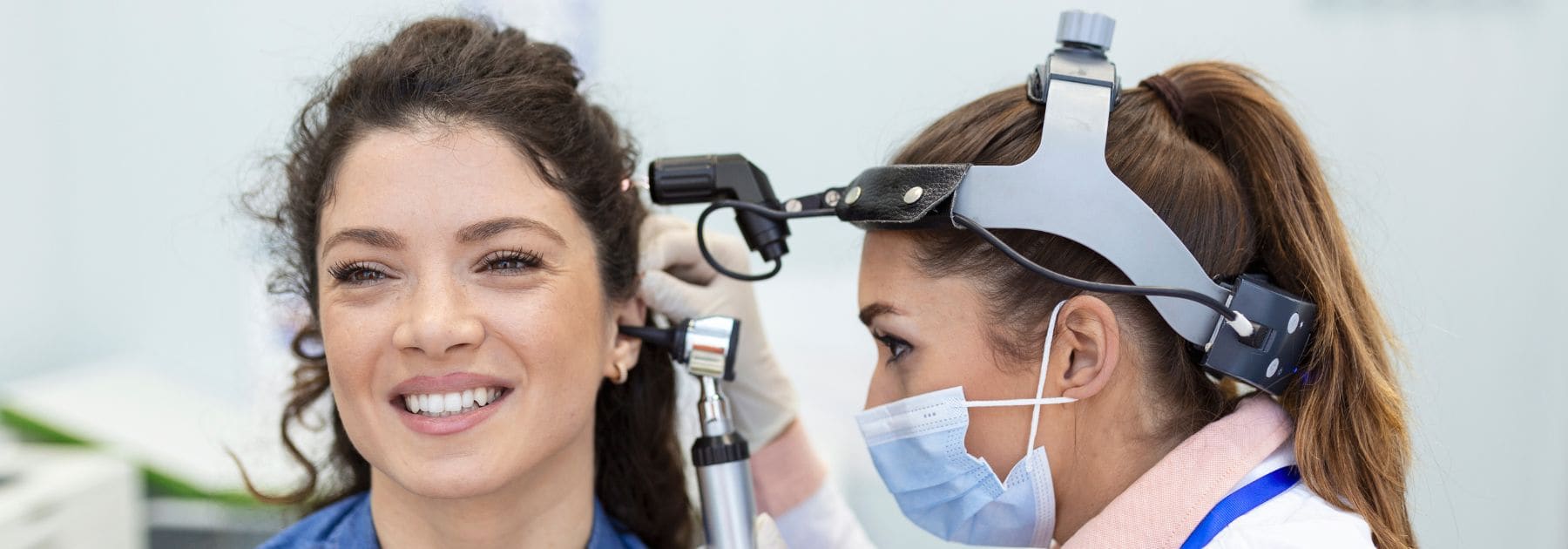Blocked Ear? Causes, Symptoms, and How to Unblock It Safely
A blocked ear can be more than just annoying—it can interfere with your hearing, make your head feel unbalanced, and even cause pain or discomfort. Whether it’s due to a buildup of wax, changes in air pressure, or an underlying infection, understanding what’s behind a blocked ear is the first step toward relief.
In this guide, we’ll explore the common causes of blocked ears, how to treat them safely at home or with professional help, and when it’s time to see a healthcare provider.
What Does a Blocked Ear Feel Like?
When your ear feels blocked, it may come with a variety of symptoms, such as:
-
-> Muffled or reduced hearing
-
-> A feeling of fullness or pressure inside the ear
-
-> Mild discomfort or pain
-
-> Ringing or buzzing (tinnitus)
-
-> Dizziness or imbalance in some cases
A blocked ear may affect one or both ears and can develop suddenly or gradually depending on the cause.
Common Causes of a Blocked Ear
There are several reasons why your ear might feel blocked. Identifying the cause is essential for choosing the right treatment:
1. Earwax Buildup
This is one of the most frequent culprits. Your ears naturally produce wax (cerumen) to protect the ear canal, but sometimes it can build up and harden, blocking the ear and affecting hearing.
2. Eustachian Tube Dysfunction
The Eustachian tubes connect your middle ear to the back of your nose and throat. When they become blocked—due to allergies, colds, or sinus infections—it can create a feeling of pressure or blockage in the ears.
3. Changes in Air Pressure
Quick changes in altitude, such as during take-off or landing on a flight, can cause the ears to “pop” or feel blocked. This is known as barotrauma and is typically temporary.
4. Water Trapped in the Ear
After swimming or showering, water can become trapped in the ear canal, leading to a blocked feeling and potential infection (commonly known as swimmer’s ear).
5. Ear Infections
Middle or outer ear infections can cause swelling, fluid build-up, and pressure that leads to a blocked sensation.
6. Foreign Object in the Ear
More common in children but not unheard of in adults, a foreign object can cause a blocked ear along with pain and discomfort.
How to Safely Unblock a Blocked Ear
The right treatment depends on the underlying cause. Here are some safe and effective ways to unblock your ears:
For Earwax Buildup:
-
-> Olive oil ear drops can help soften the wax, making it easier to fall out on its own.
-
-> Over-the-counter earwax softeners are also available.
-
-> Microsuction earwax removal is a safe, professional option we offer at Bourne End Pharmacy. It’s quick, comfortable, and effective—especially if drops haven’t worked.
For Eustachian Tube Blockage:
-
-> Yawning, swallowing, or chewing gum may help open the Eustachian tubes.
-
-> Nasal decongestants or antihistamines can relieve congestion if allergies or a cold are the cause.
-
-> Steam inhalation may also help relieve sinus pressure.
For Water Trapped in the Ear:
-
-> Tilt your head sideways and gently pull the earlobe to encourage water to drain out.
-
-> Use the “vacuum hand method”—press your palm over your ear and quickly remove it to create a suction effect.
-
-> Avoid using cotton buds, which may push water or wax deeper into the canal.
When Should You See a Pharmacist or Doctor?
While many blocked ears resolve on their own, it’s time to seek professional help if:
-
-> The blockage lasts more than a few days
-
-> You experience severe pain, fever, or drainage from the ear
-
-> Your hearing loss is sudden or worsening
-
-> You’ve recently had surgery or a known eardrum perforation
At Bourne End Pharmacy, we offer expert advice, ear health checks, and microsuction earwax removal by trained professionals. No need to wait weeks for a GP appointment—we’re here to help locally and promptly.

What Not to Do with a Blocked Ear
It’s important to treat your ears with care. Here are a few things to avoid:
-
-> Don’t use cotton buds – they often push wax further in and can damage the ear canal or eardrum.
-
-> Don’t insert any sharp objects into the ear — you may cause serious damage to the ear.
-
-> Avoid home syringing kits unless advised by a healthcare professional — they carry risks if used incorrectly.
Preventing Blocked Ears
Here are some tips to prevent blocked ears in the future:
-
-> Use earplugs when swimming to avoid trapped water.
-
-> Regularly clean your outer ears with a damp cloth—but avoid inserting anything into the ear canal.
-
-> If you produce excess wax, use olive oil ear drops weekly as a gentle preventative measure.
-
-> Stay on top of allergies and sinus conditions with the help of pharmacy-recommended treatments.
Book an Earwax Removal Appointment Today
If your blocked ear isn’t resolving or you’re unsure about the cause, book a consultation at Bourne End Pharmacy. Our team can assess your ears, recommend suitable treatment, and carry out microsuction earwax removal if necessary.
This blog was written on behalf of Bourne End Pharmacy by Pharmacy Mentor.


